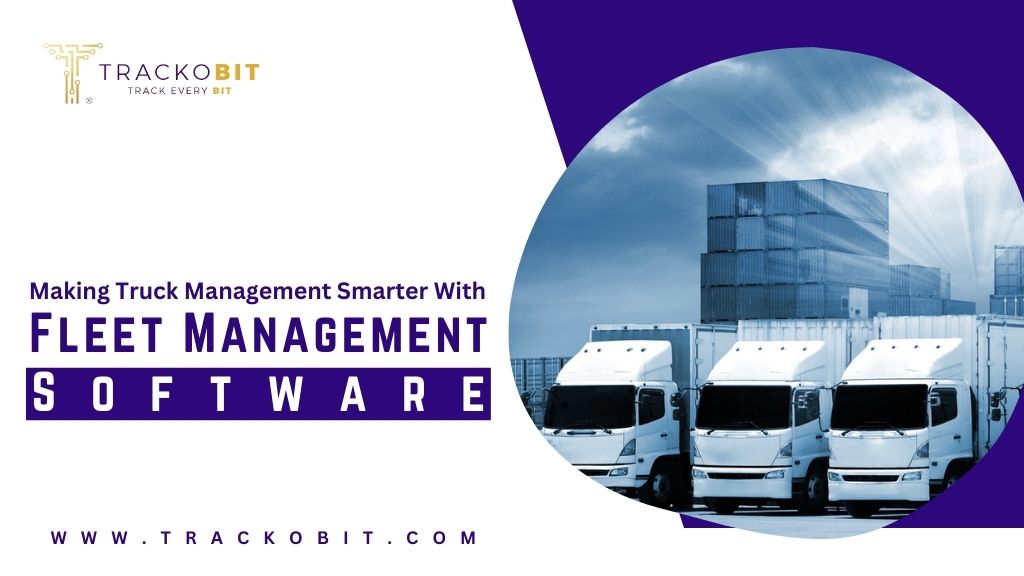Introduction
Managing a fleet of trucks can be a complex and time-consuming task. From scheduling and routing trucks to tracking delivery times and monitoring fuel consumption, fleet owners have a lot of responsibilities to keep track of. However, with the advancement of technology, fleet management has become easier and more efficient. A trucking management system is one of the most effective solutions for fleet management.
What is a Trucking Management System?
A trucking management system (TMS) is software that helps fleet owners manage their operations, vehicles, and drivers more efficiently. It integrates with GPS devices to provide real-time tracking and reporting, allowing fleet owners to monitor their trucks’ location, speed, and progress. The software can also provide valuable insights into fuel consumption, driver performance, and delivery times, among other metrics.
Benefits of Real-Time Tracking and Reporting
Improved Customer Service
With real-time tracking and reporting, fleet owners can provide their customers with up-to-date information on delivery times. This allows customers to plan their operations more effectively and reduces the risk of missed deliveries. By providing accurate and timely information to their customers, fleet owners can improve customer service and build stronger relationships with their clients.
Increased Fleet Efficiency
Real-time tracking and reporting help fleet owners better use their vehicles and drivers. With accurate information about the location and status of their trucks, fleet owners can make more informed decisions about routing, scheduling, and resource allocation. This leads to increased fleet efficiency and reduced fuel costs, which can result in significant savings for the fleet owner.
Enhanced Driver Safety
With real-time tracking and reporting, fleet owners can monitor the speed and behavior of their drivers. This helps ensure that drivers follow safe driving practices, such as obeying speed limits and avoiding sudden stops or turns. By promoting safe driving habits, fleet owners can reduce the risk of accidents and improve driver safety.
Improved Dispatch Operations
Real-time tracking and reporting can help fleet owners streamline their dispatch operations. With accurate information about the location and status of their trucks, fleet owners can make better decisions about routing and scheduling. This leads to reduced dispatch times and improved delivery times, which can result in increased productivity and customer satisfaction.
Better Asset Utilization
With real-time tracking and reporting, fleet owners can monitor the usage of their vehicles and make more informed decisions about maintenance and replacement. This leads to better asset utilization, as fleet owners can plan maintenance and repairs more effectively, reducing downtime and improving the lifespan of their vehicles.
Improved Driver Performance Monitoring
A trucking management system can provide detailed information about driver performance, including driving habits, fuel consumption, and delivery times. This allows fleet owners to identify areas where drivers can improve and provide targeted training and coaching to enhance their skills. Fleet owners can reduce fuel costs, improve delivery times, and enhance customer satisfaction by improving driver performance.
Enhanced Fuel Management
A trucking management system can provide detailed information about fuel consumption, allowing fleet owners to monitor and optimize fuel usage. With real-time tracking and reporting, fleet owners can identify areas where they can reduce fuel consumption, such as reducing idling time, optimizing routes, and reducing speeding. Fleet owners can reduce costs and improve their bottom line by improving fuel management.
Improved Compliance and Safety
With real-time tracking and reporting, fleet owners can ensure that their vehicles and drivers comply with safety regulations and standards. This includes monitoring vehicle and driver safety, compliance with federal and state regulations, and adherence to company policies and procedures. By improving compliance and safety, fleet owners can reduce the risk of accidents and penalties and protect their businesses from liability.
Customizable Reporting
A trucking management system can provide customizable reporting, allowing fleet owners to access the information they need when they need it. This includes real-time updates, historical data, and performance metrics. With customizable reporting, fleet owners can make better decisions and achieve their business goals more effectively.
Increased Customer Satisfaction
With real-time tracking and reporting, fleet owners can provide their customers with up-to-date information about their deliveries. This includes delivery status, estimated delivery times, and any potential delays or issues. Fleet owners can enhance their reputation and increase customer satisfaction by providing this information to their customers. In addition, real-time tracking and reporting can help fleet owners respond to customer inquiries more quickly and effectively, enhancing their reputation and customer satisfaction. By improving customer satisfaction, fleet owners can build stronger relationships with their customers, attract new business, and grow their revenue.
Conclusion
In conclusion, HorizonGO is a trucking management system with real-time tracking and reporting that offers numerous benefits for fleet owners. The benefits of a TMS are clear, from improved customer service to increased fleet efficiency and enhanced driver safety. By investing in a TMS, fleet owners can streamline their operations, reduce costs, and improve customer satisfaction. With real-time tracking and reporting, fleet owners can make better decisions, respond to issues more quickly, and achieve their business goals.




